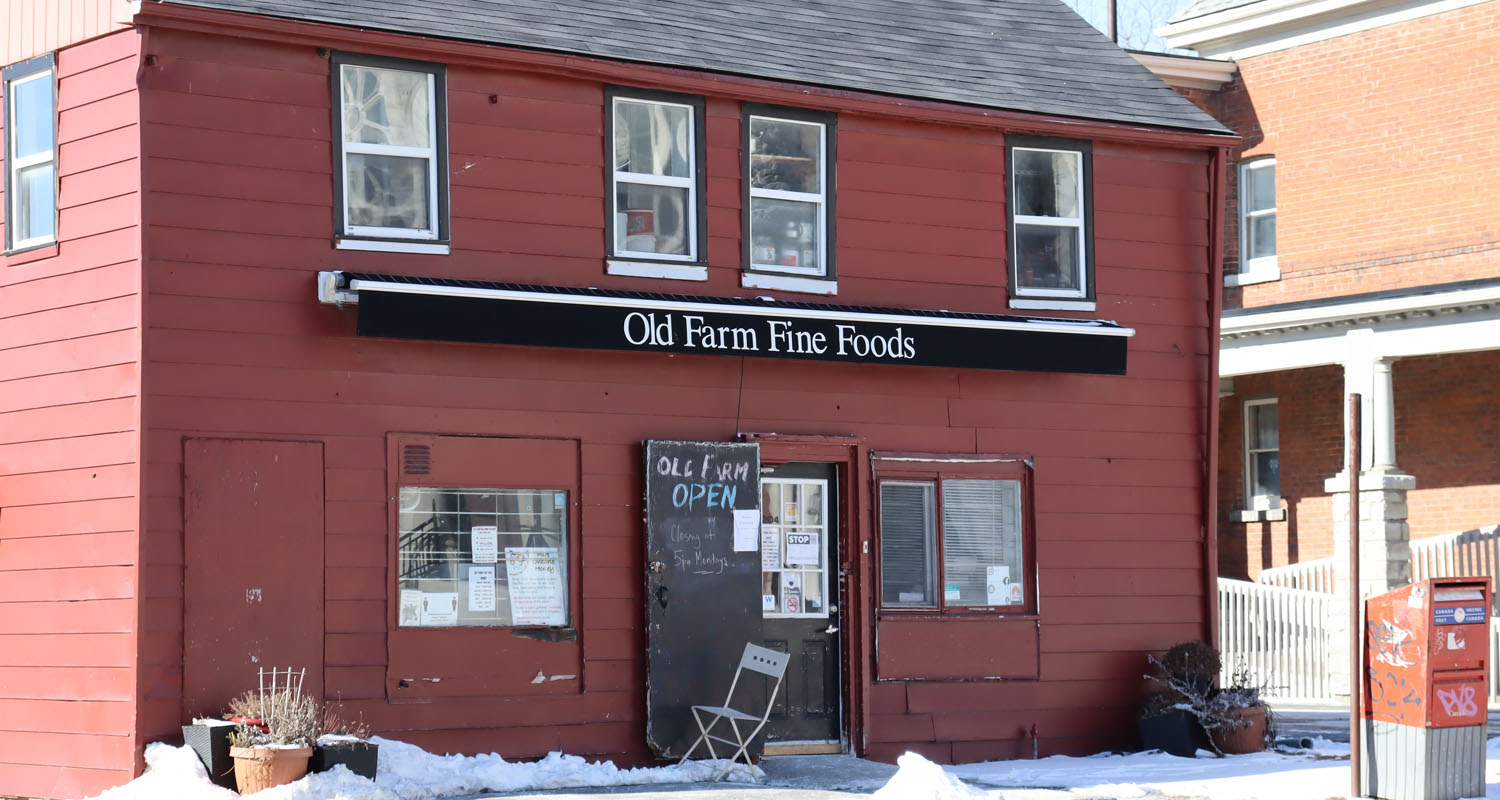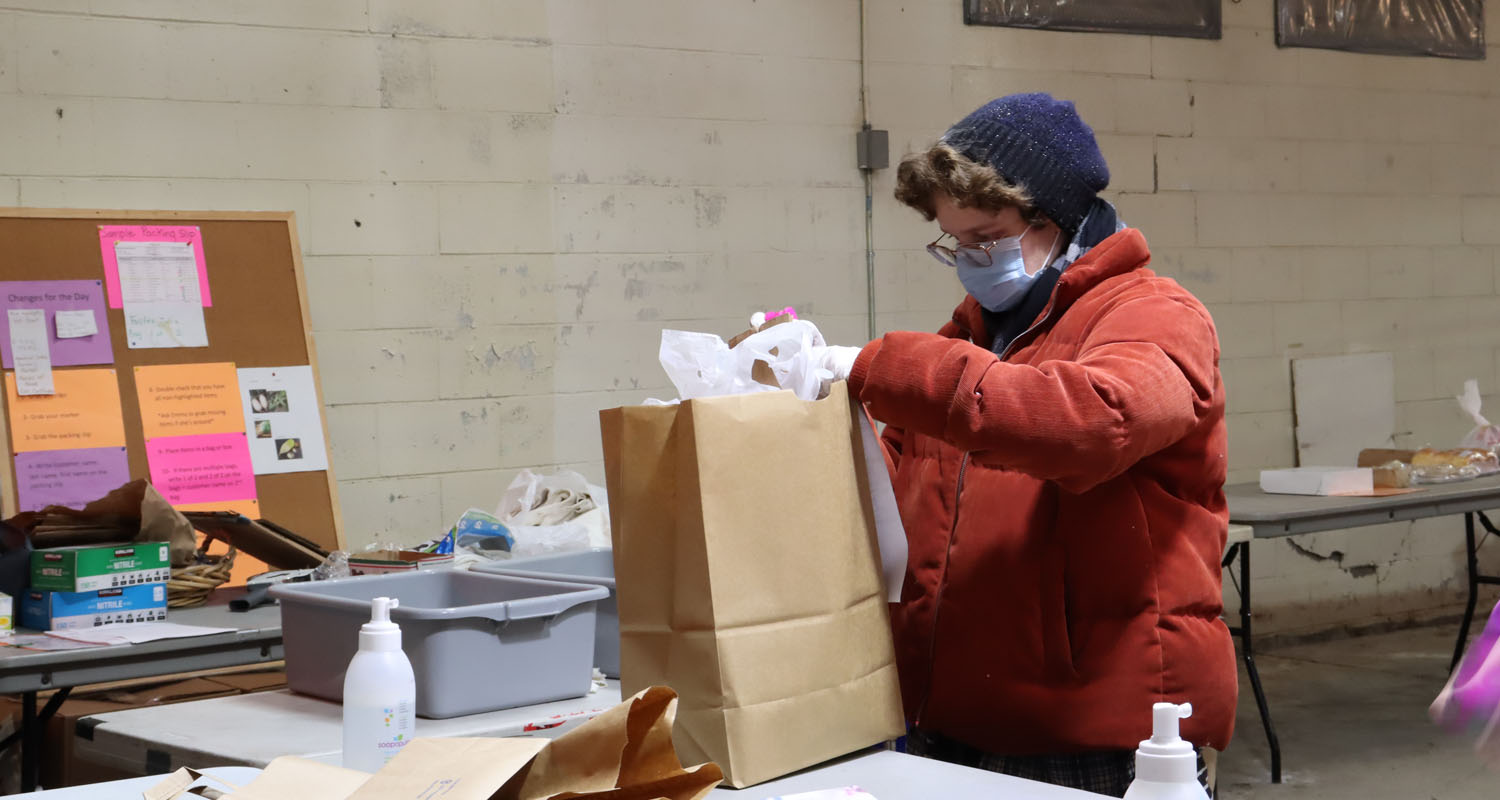Members of the farming community are calling for a higher minimum wage or a basic income to make local food more widely accessible.
Anna Stafford
Kicker
A higher minimum wage or a guaranteed basic income is required to make local food more accessible, according to some members of the Kingston-area farming community.
Buying local should be affordable to all, said Mara Shaw, the executive director of the National Farmer’s Union
“It’s not the cost of food…it’s the acceptance of income inequality that’s the problem,” said Shaw.
She made the comments during her presentation on the climate crisis and farming to the activist group called 350 Kingston on Jan. 25.
Her presentation focused on the environmental benefits of eating local and supporting farmers in the area. Despite the benefits of eating local, she recognized not everyone can afford to make that choice.
Josh Suppan, a local farmer and the president of the local chapter of the National Farmer’s Union, says people who can afford to buy local food have “a mid-range income, if not higher.
“It’s just not accessible,” he said.
Suppan owns and operates Fat Chance Farmstead, a fruit and vegetable farm in Harrowsmith just north of Kingston. He sells boxes of a week’s worth of fruits and vegetables. These produce boxes make up most of his income.
Suppan and Shaw agreed the answer to this inaccessibility is income redistribution.

However, conversations around food security in Canada tend to focus on the idea of affordability and keeping food prices down.
The idea of lowering food costs means “squeezing” farmers and asking them to sacrifice income, Shaw says.
Farmers are already taking less money home than ever before, according to Shaw.
In her presentation, Shaw shared data showing farming production costs have skyrocketed. Between 1985 and 2017, farmers kept only six per cent of their gross revenue. But between 1940 and 1984, farmers kept 45 per cent of revenue.
“Everybody should have the right to eat decently, everybody should have the right to choose their own food.”
Suppan said the profit margins are tight and there are significant financial barriers just to start farming in the first place.
“Land is so expensive, you have to be very privileged to buy a farm,” he said.
He makes a decent living now, Suppan says, but that wasn’t always the case. He says he wouldn’t have been able to buy his property if it weren’t for his partner having a good job.
An increased minimum wage, or a guaranteed basic income, could allow everyone who wants to eat local the opportunity to do so, while allowing farmers to make a decent living, according to Shaw and Suppan.
The current minimum wage in Ontario is $14.25. The Ontario Living Wage Network has calculated that the living wage for the Kingston area is $17.57.

Suppan thinks a guaranteed basic income would go further than an increase to the minimum wage.
Even if the minimum wage was higher, he says, several people face other limitations in finding work and getting the hours they need to make a living, especially people with kids.
Tara Kainer, a local organizer for the Ontario Living Wage Network, also supports a basic income, and says that eating local should be an option for everyone.
“Everybody should have the right to eat decently, everybody should have the right to choose their own food,” Kainer said.
Kainer also points out that, especially since the start of the pandemic, food insecurity is becoming even more pervasive.
A report to the Kingston city council showed that in May 2020, one in seven Canadians reported experiencing food insecurity in the previous 30 days.
For Shaw, the answer is clear.
“There’s got to be some kind of income redistribution, and it doesn’t have to be anything crazy, it just means forcing employers to pay a decent wage.”




Be the first to comment